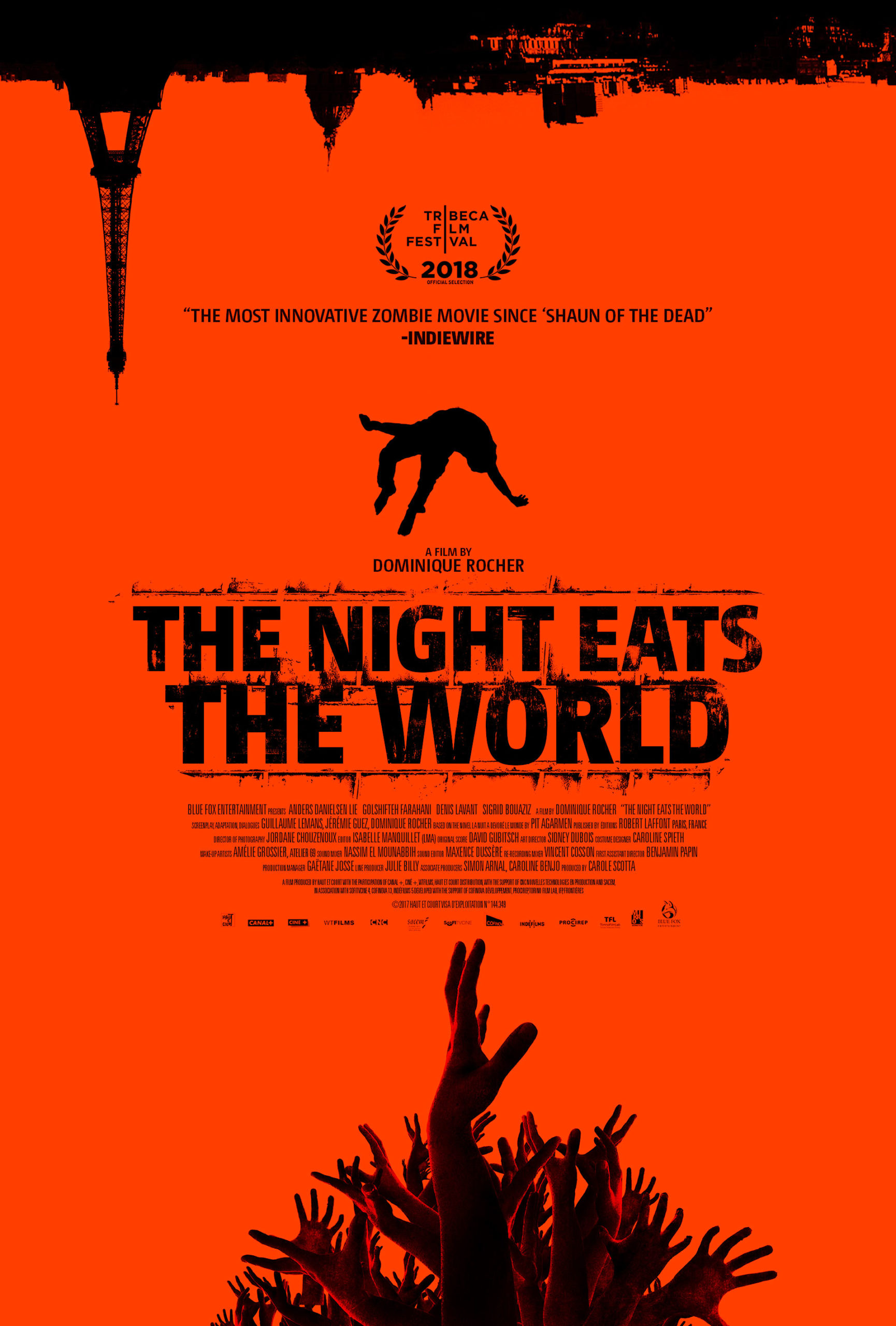Ah, zombie flicks. So many possibilities, and so many variations. The basics are always there, with tweaks as required by the storytellers. It’s a subgenre of horror that’s so versatile that filmmakers have to truly work hard to make something that’s unwatchable. No worries, there, with 2018’s The Night Eats the World. This is a fine entry into the oeuvre of the undead.
Adapting a novel by Pit Agarmen, The Night Eats the World comes to us from screenwriters Jérémie Guez, Guillaume Lemans, and Dominique Rocher, with Rocher directing. From that list of names, one can guess that this film hails from France. It does, but it was filmed in English.
The film stars Norwegian actor Anders Danielsen Lie, and it’s mostly his show.
Lie plays Sam, a 30-something musician who wakes up after a party to find that Paris has been overrun by zombies. Unable to leave the apartment building where the party happened, he sets about surviving the zombie apocalypse in lonely isolation, his only company being a zombie (Denis Lavant) that is trapped in an elevator cage.
This isn’t a frenetic zombie flick, though it does have those types of moments here and there. It’s more a study of Sam’s isolation. He spends the first few days of the zombie apocalypse exploring and securing the building. That’s a depressing chore, but in a curious decision by the filmmakers, one that doesn’t seem to affect Sam all that much. He deals with the situation like it’s one of life’s everyday inconveniences.  This flawed characterization doesn’t last past the first act of the film, so it’s not an unforgivable sin. By the halfway point of the movie, when Sam has been locked away in the building long enough for the seasons to change, the effects of isolation are becoming manifest.
This flawed characterization doesn’t last past the first act of the film, so it’s not an unforgivable sin. By the halfway point of the movie, when Sam has been locked away in the building long enough for the seasons to change, the effects of isolation are becoming manifest.
Lie took on a tough assignment with this role. There isn’t a scene in the film where he is not the main focus, and in the majority of those scenes, he’s all alone. It was up to Lie, much more than the screenplay, to bring the character to life, and he does so, at least enough that viewers should develop empathy for the character. We want him to survive. We want to see the happy ending. This being a French film, it’s reasonable to think that won’t happen, which was enough to keep me nervous about Sam’s fate throughout, especially after his mind begins to unravel.
An unraveling mind was always going to happen in a film like this, which deals with a rather extreme form of isolation, and this is where the going got toughest for all involved. How crazy would Rocher and company allow Sam to get? How much misdirection would the audience tolerate? What finally made it into the movie was not some master class in psychological horror, but it did keep audience manipulation to respectable levels, despite throwing in a cheapie dream sequence.
This is a small-scale film, with a budget estimated to be less than three million euros. Despite this, the makeup work on the zombie extras is excellent, and set and location dressing matched. Sam’s small world consists of the apartment building, and what he can see from its windows. This slice of Paris is a bloody mess, and conveys why Sam is reluctant to leave his island of refuge. Good work, all around.
There’s not much in the way of frights in this movie, and other zombie flicks deliver more gore. It’s hard to call a zombie flick realistic, but that is an apt descriptor for this film. The Night Eats the World is a nice contrast to bigger, more expansive entries in the subgenre. If one likes a little mind-fuckery with their flesh eating, this film is a good choice.
